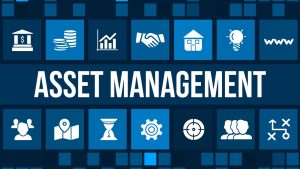A business strategy acts as the backbone of an organisation by ensuring that all aspects of the business are a predetermined endeavour and are continuously optimised through the process. It promotes a healthy work culture, and success-guaranteed decisions while nurturing internal commitment. It gives competitive advantages to a business to grow and sustain under unforgiving market trends. In the absence of coherent business strategies, businesses will struggle to stay afloat with no direction or identifiable objectives to pursue. This is why incorporating business intelligence extracted from digital data technologies into business strategies is a practice followed by all successful businesses across the world.
This article ventures to identify the uses of data analytics in guiding business decisions and strategies towards success.
Why Is BI Important to Strategise a Business?
All businesses, including family businesses and SMEs, produce a voluptuous amount of data every day. For a business to grow from a small scale to a conglomerate, relying on business data analytics is inevitable, for it has the potential to envision success, resilience and financial stability for any data-driven business. It is important that the central decision-makers of any business have the ability, experience and needful tools to interpret informed decisions out of the whirlpool of data they capture.
Data interpretation has the capacity to unlock business strategies in key operational bodies of the business. May it be production, pricing, marketing inventory, talent recruiting or operational optimisation, data plays a vital role in decision-making. This is why businesses recruit professionals or rely on self-reliant BI technology to obtain, filter, standardise, analyse and interpret data surging from countless data-rich sources. For example, if a company is suffering from trying to regulate product costs, the organisation can exploit customer-driven survey results to interpret ways they can save money, time and other resources in producing and distributing their finished goods.
How Does Business Analytics Optimise a Business?

Understanding business analytics and having the capacity to apply it to various business processes in order to make better business decisions has become essential for business sustainability, especially for smaller organisations. Business analytics entails data analysis to create prediction models, optimisation techniques, and the presentation of results to staff and customers. It offers a data-driven approach that uses data modelling and statistical analysis to offer beneficial business insights.
The use of data analytics inside an organisation can enhance a company’s financial performance, streamline operations and resource allocation, boost operational effectiveness, enable the most effective marketing campaigns, and even enhance customer service. Additionally, it can be utilised to react swiftly and effectively to emerging market trends, giving businesses an advantage over rivals. Here are 7 instances of how business analytics can optimise the strategies and decisions of different departments of your organisation.
Core Optimisation of End-To-End Operations
With the dynamic market trends, the competitiveness of your industry and a digital-transitioning age of commercial and industrial worlds, operational optimisation is a superpower that all forward-thinking businesses have. Meeting the peak of optimised operations is a goal that can be met by manipulating your data to narrate success stories. Business data analytics allows businesses to understand the actual current operational potentials and help business strategists to recommend ways to predict better operational excellence and improve operations from the bottom line. Data analytics tools help businesses to explore business discrepancies and guide business professionals from assessments to implementation in making operational decisions and strategies.
Ensuring Secured and Privatisation of Sensitive Information
Cyberattacks involve abnormal access patterns, especially DDoS attacks that will misuse data in a fraudulent manner to illegally misapply information for personal benefit by wrongdoers. By studying and displaying historical data, forward-thinking data-driven businesses can analytically comprehend what factors contribute to past data breaches. This narrows down the occurrence of Future security breaches and prevents them by employing statistical models to escape data mismanagement. Businesses can set up analytics models that offer continuous service, loaded with monitoring and warning systems to spot anomalies and trigger cyber security experts to take the necessary action.
Marketing Successes
Data analytics is used by marketers of various businesses to address accurate problems in attracting potential customers to do business with the company. The analysis of data for marketing purposes is known as marketing analytics. Businesses can better understand what motivates consumer behaviour, hone their marketing strategies, and maximise their return on investment by applying technology and analytical procedures to marketing-related data. Marketing teams may improve their marketing goals, gain deeper customer insights, and maximise return on investment by using marketing analytics, eventually generating profit for both marketers and consumers.
Mitigating Business Risks
Data analytics in risk management can lessen the impact of expensive business interruptions, which eventually creates a safer, more confident and more motivating environment for decision-makers to make informed decisions. To find new possibilities, forecast outcomes, and proactively reduce hazards before they have a chance to hurt your business, employ AI-powered data insights. One of the main examples that highlight the use of data analytics in risk reduction is the propensity of predictive data analytics to mitigate asset performance risks. Asset-driven organisations can use new-age data tools to predict asset risk, cost and performance before making asset management decisions, thus, saving the organisations from wasting resources and time.
Pinpointing Profitable Opportunities and Strengths
Organisations that plan on taking the initiative and making the best decisions in exploring business prospects can do so with the help and security that business analytics offers. Businesses may fully automate their decision-making processes through business analytics, providing them with the tools they require to uncover better business possibilities and provide real-time retorts to client issues. By using prognoses of what might happen and suggestions for what to do, businesses can utilise prescriptive and predictive analytics to acclimate to changing situations. Businesses might use it to find fresher markets and other business expansion opportunities. This creates endless wealth and success prospects based on clever and accurate data-driven solutions.
Producing Essential Insights
Gaining insightful knowledge about the firm is attainable by capitalising on the source of truth generated by the wealth of data. As a result, making judgments is simpler, quicker, and more straightforward. Business owners and marketers can use business analytics to track changes in the market, consumer trends, and the competitive environment under a single scalable screen. Decision-makers can monitor everything and, if the statistics call for it, make changes immediately by studying comprehensive insights driven by data technology. Based on this data, businesses may use analytics to create detailed profiles of their clients, improving their understanding of their needs and enabling the delivery of more specialised services. Businesses may use behavioural analytics models on crucial consumer data to enhance customer experience.
Success-Driven Decision-Making
Businesses can use business analytics to acquire a thorough understanding of their operations and vital insights into optimising and improving their workflows to boost productivity. It shouldn’t be a surprise that companies that use analytics and are data-driven perform better than their rivals. Businesses can learn how and why particular results are obtained, look into alternate, more effective techniques, and even predict the likelihood of specific outcomes by studying company data. Businesses can save money and make better decisions thanks to the information provided by business analytics.
Are You Equipped to Sustain in a BI-powered Future?
Business intelligence breakthroughs in the future will make the most of augmented technologies like AI-ML and automation, as well as underused digital assets to make informed decisions and follow battle-tested business strategies. Businesses can make strategic decisions thanks to business intelligence. Better company decisions and higher financial performance result from having a system that keeps your organisational data updated and consolidated. All this leads to one question that your data professionals should ask your business: are we equipped with the ideal data technologies to reap benefits from hidden data trends of the business? If you are still in doubt, then it is the best time to find digital data technology counterparts for your business strategists and decision-makers promptly.






